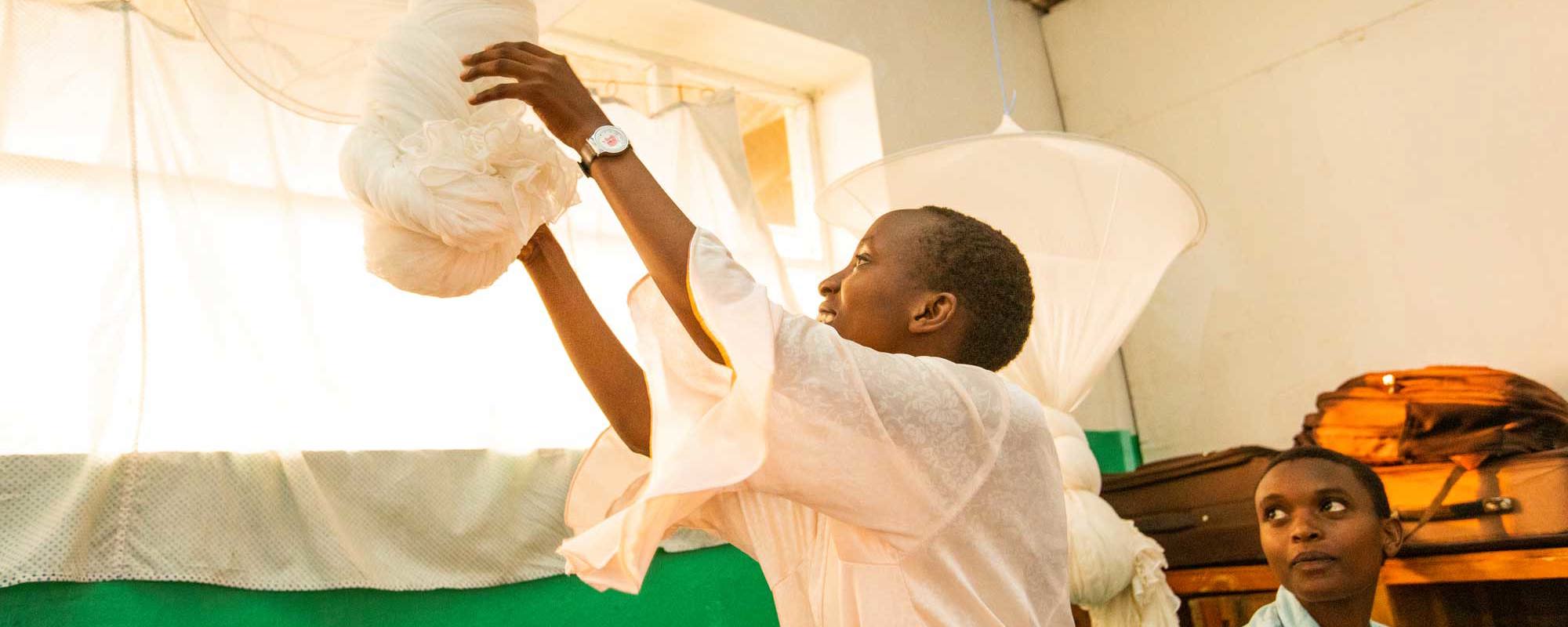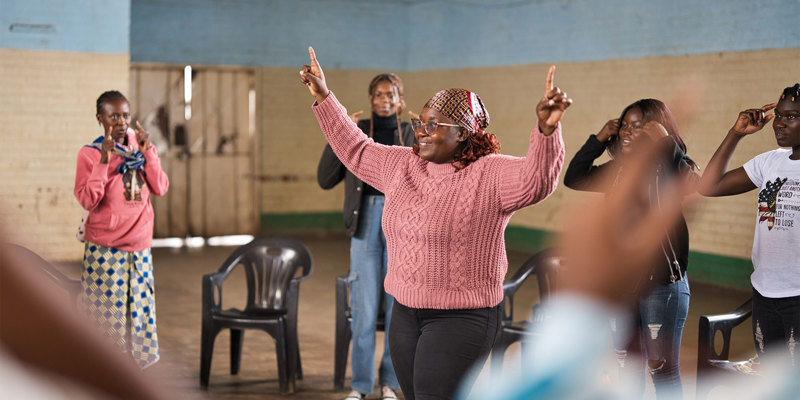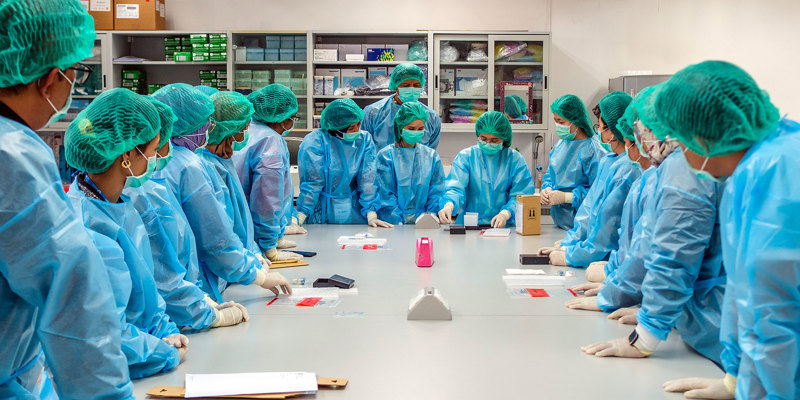

Ellen Johnson Sirleaf: Here’s How I Survived Malaria
It’s been decades since I fell ill from malaria as a young girl, but I remember the feeling like it was yesterday. My body was weak and I couldn’t eat, sleep or go to school.
I was terrified of dying after losing so many friends to the disease. I’m lucky I survived but there is no doubt about how I did: strong and skilled female caretakers who nursed me back to health.
Today, malaria continues to exact a heavy toll on communities and women and girls bear an undue burden. Despite being a treatable and preventable disease, malaria is one of the leading causes of death for adolescent girls worldwide and claims the life of a child every minute.
But women and girls aren’t only patients, they’re healthcare providers, and often, the primary caregivers. When someone in the household falls sick, women and girls are left home to care for them, leading to absences from work and school and billions of pounds in lost income and productivity each year.
There has been incredible progress against malaria in recent years and I’m confident we can beat this disease within a generation. But that will only happen if we take advantage of upcoming opportunities and invest in efforts that put women and girls at the centre. The lives and livelihoods of millions are at stake.
Later this month, alongside the Commonwealth Heads of Government Meeting, global leaders will gather for The Kigali Summit on Malaria and Neglected Tropical Diseases. This will be a critical opportunity for governments to decide on where they should invest for the biggest health security impact. There are a few key priorities that I hope are at the top of the agenda.
First, we need a fully funded Global Fund to Fight Aids, Tuberculosis and Malaria, an incredibly effective global institution that Britain helped found over 20 years ago to end the three diseases.
Investing in the Global Fund continues to be one of the best ways we can accelerate progress toward malaria eradication. Over the last 20 years, the Global Fund has helped save 10.6 million lives from malaria and prevent more than 1.7 billion malaria cases.
Addressing gender and human rights barriers is also an integral part of the Global Fund’s work. Their programmes support women and girls in gaining access to health services and leadership opportunities.
The UK has long been a champion for gender equality and a leader in the fight against malaria, particularly through its strong support for the Global Fund, and I urge the UK to continue in its leadership.
The Global Fund needs to raise at least US$18 billion to support its work over the next three years. This amount will save 20 million more lives and avert over 450 million cases of infection – all of this, while making progress toward gender equality.
Germany just recently announced a substantial increase in their 2022 pledge and US President Joe Biden signaled a 30 per cent increase in the US pledge earlier this year. But the US’ contributions must be matched to unlock its US$6 billion commitment and they are looking at close allies like the UK to step up.
Second, we need to invest in training to expand the community health workforce. Women account for 70 per cent of community health workers globally, providing an essential first line of defence against public health threats, like Covid-19, especially in communities that are remote.
Recognising how essential these workers are, the Global Fund has trained more than two million community health workers in the countries where it invests. These trusted individuals are vital to not only prevention, detection and monitoring efforts for malaria, but other diseases too – making them an essential component of pandemic prevention.
Third, malaria programmes need comprehensive data to make decisions about where and when to allocate resources to drive malaria cases down. Current data isn’t broken down by sex or age, meaning there is not enough information to understand how women and girls are impacted by the disease and how to improve access to life-saving interventions for them.
The Global Fund is working with countries where they invest to collect this data through systems like the Malaria Matchbox Tool, which assesses the equity of existing malaria services. Today, over 50 per cent of countries where the Global Fund works provide data that are fully broken down by sex and age.
This allows for a better understanding of where, when and if gender inequalities exist to allow for more informed responses through programmes, resourcing and policy decisions.
As world leaders gather, we must take advantage of the opportunity to catalyse real change. Every £100 million invested in the Global Fund provides malaria treatment for two million people, distributes more than 11 million mosquito nets to protect children and families from the disease and saves nearly 140,000 lives.
I won’t stop fighting until women, young girls and all families no longer have to live in fear of dying from this preventable and treatable disease. We don’t have time to lose. Let’s invest in what counts toward a healthier and safer world for everyone.
This op-ed was first published in The Telegraph.







